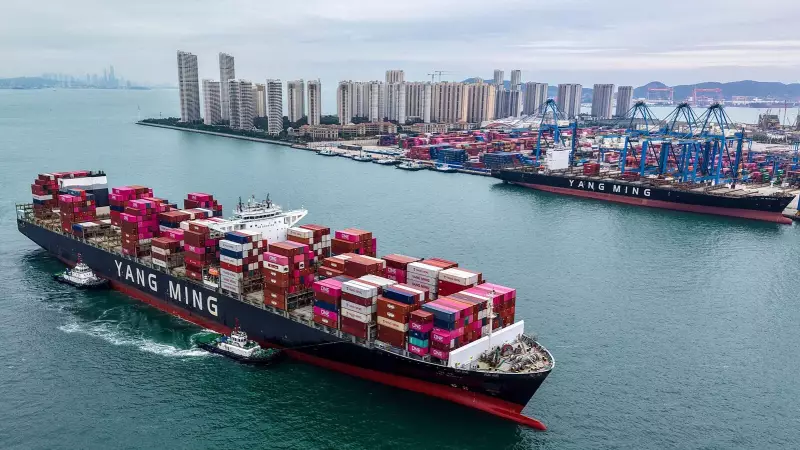
As the world's maritime industry sails toward a greener future, India finds itself navigating uncharted waters with unprecedented opportunities. The global shipping sector's ambitious decarbonization journey presents a strategic opening for emerging economies to rewrite the rules of marine fuel dominance.
The Great Fuel Debate: Charting India's Course
The transition away from traditional bunker fuels has sparked intense debate about which alternative will power the ships of tomorrow. While Liquefied Natural Gas (LNG) has gained significant traction as a transitional fuel, experts warn this might be a costly detour rather than the final destination.
"The LNG pathway risks locking us into fossil fuel infrastructure that could become obsolete within decades," explains energy analyst Priya Sharma. "Meanwhile, green methanol and ammonia are emerging as truly sustainable alternatives that align with net-zero targets."
Carbon Pricing: The Game Changer for Indian Shipping
India's potential implementation of carbon pricing could dramatically accelerate the green transition. By putting a price on emissions, the country could create powerful economic incentives for adopting cleaner fuels while generating revenue to fund sustainable infrastructure.
The European Union's Emissions Trading System (ETS) already demonstrates how carbon pricing can drive change. India could leverage similar mechanisms to position itself as a leader in green shipping corridors, particularly along crucial trade routes connecting Asia with Europe and North America.
Strategic Advantages for India's Maritime Future
India's geographical position and growing industrial capacity offer unique advantages in the green fuel revolution:
- Renewable Energy Potential: Abundant solar and wind resources could power production of green hydrogen and its derivatives
- Strategic Location: Positioned along major shipping lanes, ideal for establishing green fuel bunkering hubs
- Manufacturing Capability: Potential to become a global hub for green fuel production and ship component manufacturing
Navigating the Methane Challenge
The methane emissions associated with LNG present a significant climate concern. "Methane's warming potential is over 80 times greater than CO2 in the short term," notes environmental scientist Dr. Arjun Mehta. "This makes careful management of methane slip crucial for any LNG transition strategy."
Emerging solutions like methane detection technologies and improved engine designs offer pathways to mitigate these risks, but they require substantial investment and regulatory oversight.
The Road Ahead: Policy and Investment Imperatives
Success in the green shipping transition will require coordinated action across multiple fronts:
- Clear Regulatory Framework: Establishing standards for green fuels and emissions reporting
- Infrastructure Development: Building bunkering facilities for alternative fuels at major ports
- Research and Innovation: Supporting development of next-generation marine technologies
- International Collaboration: Working with global partners to harmonize standards and create green corridors
As global shipping undergoes its most significant transformation in a century, India has the opportunity to not just adapt to change, but to drive it. The choices made today will determine whether the country becomes a rule-taker or rule-maker in the future of maritime transport.





